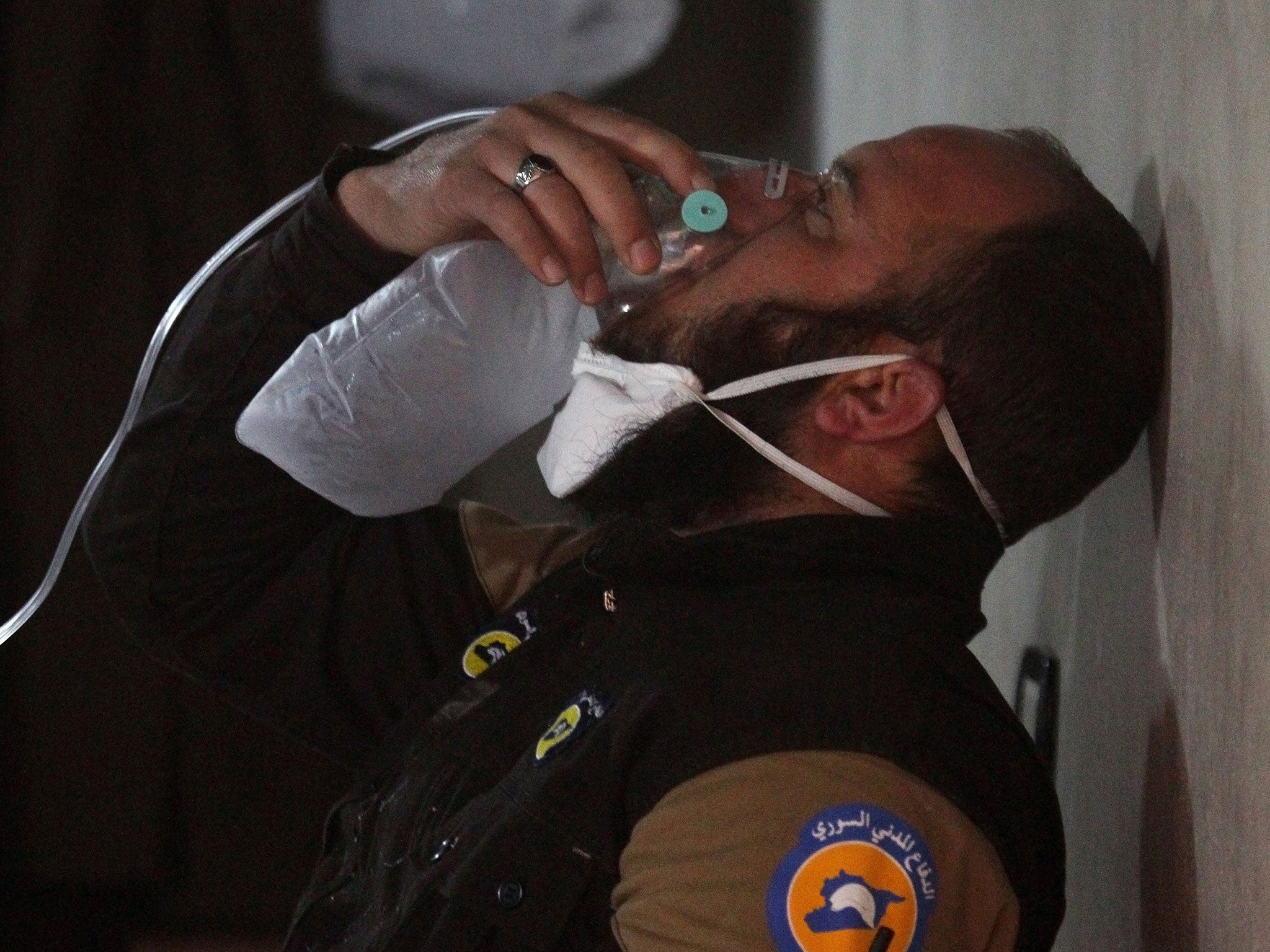Syrian government was behind April sarin gas attack, UN says
‘Government forces continued the pattern of using chemical weapons against civilians in opposition-held areas,’ say investigators

Your support helps us to tell the story
From reproductive rights to climate change to Big Tech, The Independent is on the ground when the story is developing. Whether it's investigating the financials of Elon Musk's pro-Trump PAC or producing our latest documentary, 'The A Word', which shines a light on the American women fighting for reproductive rights, we know how important it is to parse out the facts from the messaging.
At such a critical moment in US history, we need reporters on the ground. Your donation allows us to keep sending journalists to speak to both sides of the story.
The Independent is trusted by Americans across the entire political spectrum. And unlike many other quality news outlets, we choose not to lock Americans out of our reporting and analysis with paywalls. We believe quality journalism should be available to everyone, paid for by those who can afford it.
Your support makes all the difference.Syrian forces have used chemical weapons more than two dozen times during the country’s civil war, said UN war crimes investigators, including in the deadly attack that led to US air strikes on government planes.
In the most conclusive findings to date from investigations into chemical weapons attacks during the conflict, the UN Commission of Inquiry on Syria says a government warplane dropped sarin on Khan Sheikhoun in Idlib province in April, killing more than 80 civilians.
“Government forces continued the pattern of using chemical weapons against civilians in opposition-held areas. In the gravest incident, the Syrian air force used sarin in Khan Sheikhoun, Idlib, killing dozens, the majority of whom were women and children,” the report said on Wednesday, declaring it a war crime.
The attack was previously identified as containing sarin, an odourless nerve agent. But that conclusion, reached by a fact-finding mission of the Organisation for the Prohibition of Chemical Weapons (OPCW), did not say who carried it out.
In all, UN investigators said they had documented 33 chemical weapons attacks to date.
Twenty seven were by forces of the government of President Bashar al-Assad, including seven between 1 March and 7 July. Perpetrators have not yet been identified in six early attacks, they said.
The Assad government has repeatedly denied using chemical weapons. It said that its strikes in Khan Sheikhoun hit a weapons depot belonging to rebel forces, a claim dismissed by the UN investigators.
Reuters
Join our commenting forum
Join thought-provoking conversations, follow other Independent readers and see their replies
Comments